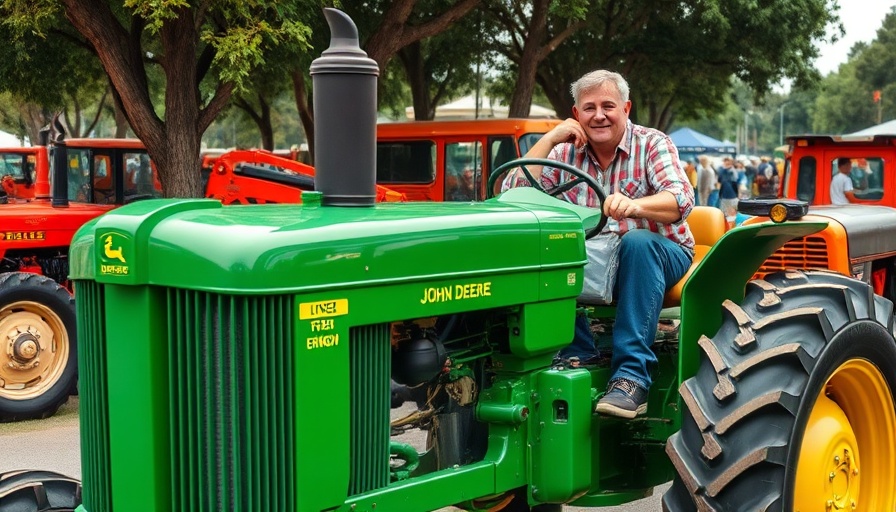
Embracing the Legacy of Vintage Farming Equipment
In a world characterized by rapid technological advancement, the enduring charm of vintage farming equipment continues to capture the imagination of many. Recently, at the Ederville Show in Carthage, North Carolina, members of the Sandhills Antique Farm Equipment Club showcased how vintage tractors were not just relics of the past but functional machines that played an integral role in agricultural tasks of previous decades.
Equipped with a 1935 Deere Model B, a 1948 Farmall M, and a 1949 Oliver 77 Row Crop, the club demonstrated the impressive capabilities of these machines. While today’s technology might dominate agriculture, history reveals how these tractors harnessed belt power to effectively run essential farm tools from the 1940s, showcasing their craftsmanship and ingenuity.
Historical Importance of Belt-Powered Tractors
Belt-powered machinery became a prominent fixture on farms in the early 20th century, bridging the gap between manual labor and mechanization. Tractors like those demonstrated at the Ederville Show represent more than just history; they illustrate a fundamental shift in agricultural efficiency. Using belt systems, these tractors operated various implements such as corn shellers and sileage cutters, crucial for farming practices of the time.
For farmers like Alvin McArtan, who grew up using this very equipment, the tractors are not just machines but memories of a lifestyle that prioritized hard work and resourcefulness. The nostalgic aspect speaks volumes, reminding attendees of the dedication and innovation of earlier generations.
Connecting Generations Through Farming Heritage
As Kurt Winpegler, current president of the Sandhills club, noted, the event was also an opportunity to connect generations. He attended the show with his two young sons, eager to share the rich history of farming with them. This blend of education and family tradition emphasizes the value of preserving farming culture and igniting curiosity in youth.
Alvin's story illustrates how this equipment was central to his upbringing, involving hands-on learning and practical experience in cultivating tobacco—a major crop in North Carolina. Today, teaching younger generations about the functionality of such machinery fosters pride and historical appreciation that can elevate interest in agriculture.
Demonstrating Engineering Ingenuity
Today's world prides itself on technological advances and superior engineering. Yet, as McArtan points out, many individuals from the farming community in the past exhibited remarkable intelligence in designing and utilizing these machines without the modern conveniences we have today.
The ingenuity required to create efficient farm machinery using minimal resources emphasizes how innovative thinking is often rooted in necessity. While the methods may have changed, the spirit of problem-solving and creativity remains a valuable lesson for current and future generations alike.
The Relevance of Vintage Tools in Modern Times
For homeowners and contractors embracing DIY projects or looking to understand the agricultural heritage of their region, knowing about vintage tractors and tools can enrich one’s appreciation of history. Understanding how these machines operated can inspire innovation even in today’s technologically advanced DIY projects.
Engaging with vintage farming equipment can also spark new business opportunities for contractors. By integrating modern services with historical knowledge, professionals can establish unique selling points that set them apart in the competitive market.
Interested in Reviving History?
Whether you’re a homeowner interested in preserving local history, a contractor eager to merge tradition with innovation, or simply someone looking to connect with the past, exploring vintage farming machinery can offer unique insights and inspirational ideas. As local farming cultures evolve, understanding and valuing historical practices could be the key to future growth in the sector.
Next time you see a vintage tractor or piece of farm equipment, consider its history, the lives it has touched, and the innovations it represents. Let’s not only preserve this rich heritage but also use it to inspire future generations. Start a conversation with friends or family about local farming history or explore how these machines can relate to skills in today’s projects!
 Add Row
Add Row  Add
Add 




Write A Comment